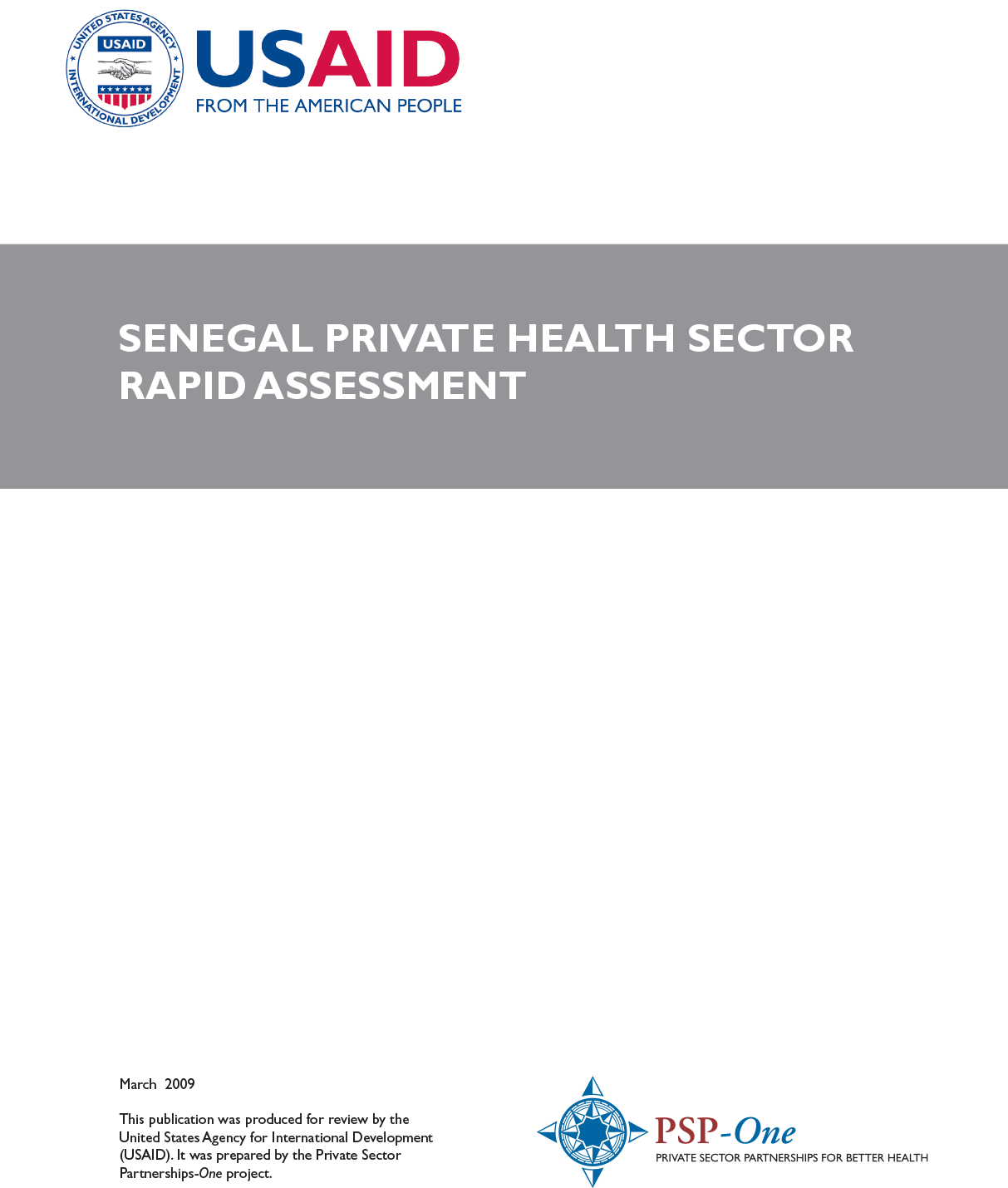
Resource Library
Senegal Private Health Sector Rapid Assessment
At the request of the United States Agency for International Development (USAID)/Senegal, the Private Sector Partnerships-One (PSP-One) project conducted a rapid assessment to understand better the current and potential market for family planning (FP) products and services in the private health sector and provide USAID with recommendations to strengthen the private health sector in Senegal. The PSP-One team found a strong private health sector with engaged, dynamic leaders and heard examples of entrepreneurial endeavors. Despite the many encouraging signs of a strong private sector, there are key constraints limiting its expansion, including:
- Limited purchasing power of potential private sector clients;
- The cost of, and restrictions on, bank credit to finance creation or expansion of medical practices;
- Limited business management skills of providers, which can inhibit their success or growth;
- Low demand for FP products and services; and
- Weak supply mechanisms to reach rural village or communities of fewer than 5,000 people.
Demand for FP services was found to be stagnant and low. Rural areas have the greatest demand for increased services and service providers, because so few providers are currently found there. Interestingly, demand seems to have grown more in rural areas than in urban ones: In the latter, the contraceptive prevalence rate (CPR) declined slightly, from 19 to 18 percent, in 2005, while CPR doubled to 5 percent in rural areas. Although the assessment team did not have the means to conduct a thorough assessment of the public and private supply chains, the team's overall impression is that the combination of public, private commercial, and social marketing channels are more than adequate to meet the existing and increased levels of demand in cities and towns with populations in excess of 50,000. Based on the findings of the assessment, PSP-One developed the following short- and long-term recommendations to strengthen the private health sector. Short-term recommendations:
- Mobilize additional resources for a communication campaign focused on FP and reproductive health.
- Conduct advocacy activities involving the public and private sectors to increase understanding, build trust, and promote effective approaches for the public sector to leverage the private sector. In particular, through training, documentation, and advocacy, USAID and its partners should help to make more FP methods available at the health hut level.
- Support the promotion and distribution of CycleBeads and other fertility awareness methods through the Association of Private Catholic Health Posts in Senegal (Association de Postes de Santé Privés Catholiques du Sénégal, APSPCS) network.
- Improve private provider knowledge by supporting a new policy to require continuing medical education (CME) credits as a condition for renewal of medical licenses.
Long-term recommendations:
- Support a policy change to allow pharmacists to own and open depots de pharmacie in underserved areas and establish other regulations that would encourage consolidation of pharmacies and "second-tier" drug shops at the community level.
- Establish a public-private partnership (PPP) against illicit, uncontrolled drugs.
- Strengthen capacity of the PPP Unit (Cellul d'Appui au Financement de la Santé et au Partenariat, CAFSP) within the government to lead dialogue with private sector representatives and create effective PPPs.
Resource Type : Report
Country : Sénégal, Senegal
Year : 2009-03-01T09:45:00
Language : English
Project : SHOPS


